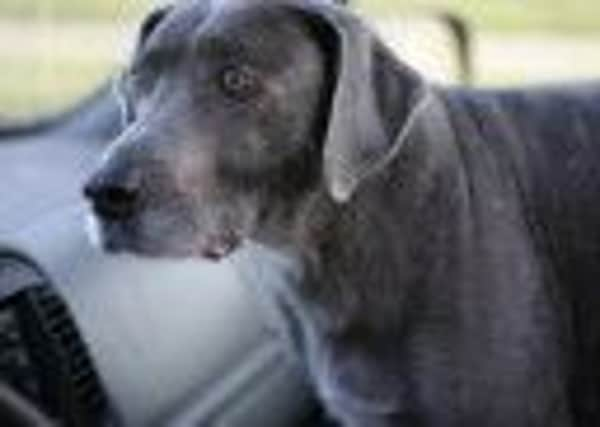Dog warden’s appeal after Ahoghill case


The advice comes from Ballymena Borough Council’s Dog Warden Nigel Devine in the wake of an incident in Ahoghill on Thursday when a dog was spotted inside a parked car in sweltering heat.
Nigel, who attended the scene along with police, and released the animal said the temperature inside the car was measured at 36.6 degrees.
Advertisement
Hide AdAdvertisement
Hide Ad“When the owner of the dog returned to the car they seemed genuinely shocked that it had been put at risk,” said Nigel who added that a warning was issued.
“People need to realise that dogs should not be left in cars in warm weather, even with the windows down,” he said.
“It is just far, far too hot for them and they can’t cool down.”
Meanwhile, Farmers and hauliers have been reminded by the Department of Agriculture and Rural Development to take extra care to protect any livestock when transporting them during warm weather. Exposure to high temperatures and humidity is a major threat to animal welfare during transport and poses a serious risk during the summer months.
Advertisement
Hide AdAdvertisement
Hide AdFailure to take account of high temperatures when planning journeys and a lack of adequate contingency plans can cause suffering to animals, the Department of Agriculture has stated.
There are a number of steps required to avoid unnecessary suffering of animals during transportation:
·Avoiding excessive disturbance to stock during loading, carriage and unloading;
·Inspecting the animals more frequently for signs of heat stress;
·Providing water or electrolyte solutions more frequently;
Advertisement
Hide AdAdvertisement
Hide Ad·Avoiding penning animals in the hotter parts of the vehicle, these are located at the front end and higher levels of the vehicle;
·Increasing the space allowance for the animals by at least 30%;
·Increasing headroom above the animals to maximise air movement and increase the potential for heat exchange; removing tiers and folding decks where possible;
·Avoiding travelling in the hotter parts of the day by planning the journey to take advantage of cooler conditions at night;
·Spraying the vehicle with water to cool it down;
Advertisement
Hide AdAdvertisement
Hide Ad·Parking in the shade whenever possible, ideally with the vehicle positioned perpendicular to any prevailing wind;
·Using a vehicle with a light coloured roof to reduce the effects of solar gain (mandatory for vehicles transporting animals on journeys over eight hours).
According to DARD: ‘Contingency plans should be in place for every journey, and are particularly important in hot conditions as delays, which might be relatively insignificant under normal conditions, can become critical very quickly.’